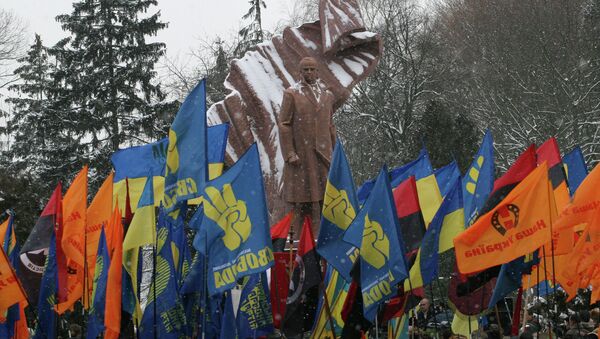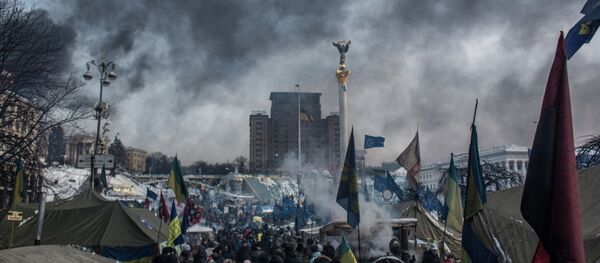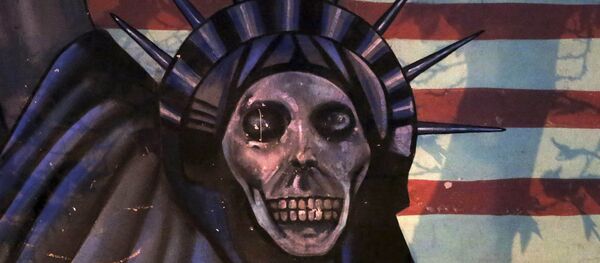After the defeat of German Nazism in 1945, members of the Organization of Ukrainian Nationalists (OUN) and their paramilitary UPA units continued their struggle against the Soviet Union. Although former Nazi collaborators officially dissolved the UPA in 1949, many of them joined foreign subversive groups and intelligence agencies, dreaming of revenge.
Rudling cited one of the CIA operative who argued that "some form of nationalist feeling continues to exist [in Ukraine] and… there is an obligation to support it as a cold war weapon."
The CIA and the US State Department also sponsored OUN leaders' immigration to the United States in 1949.
The collaboration between the OUN, the CIA and other intelligence services was mutually beneficial: former Nazi collaborators were shielded from prosecution for war crimes, while intelligence agents received valuable information about their Soviet adversaries. Furthermore, the CIA helped nationalist veterans to create "semiacademic" institutions and to assume high academic positions at established universities.
For instance, in 1956 the CIA incorporated a set of networks under Mykola Lebed's leadership and created the nonprofit Proloh (Prologue) Research and Publishing Association, whose goal was to publish anticommunist propaganda, including radio broadcasts, newspapers and books.
"Unlike many other former Soviet republics, the Ukrainian government did not need to develop new national myths from scratch, but imported ready concepts developed in the Ukrainian diaspora," Per Rudling underscored.
Predictably, numerous neo-Nazi and UPA organizations have begun emerging in Ukraine since the early 1990s. The movement received its second wind after the so-called "Orange Revolution" of 2004, backed by the West, that led to official legitimizing of many of far-right nationalist movements in Ukraine, including the VO Svoboda of Oleh Tyahnybok, who were active participants in the Euromaidan of 2013-2014. The Kiev regime of Viktor Yushchenko bolstered nationalism and encouraged an anti-Russia's stance in Ukraine.
However, Ukraine's new democratically elected president Viktor Yanukovich (2010-2014), nearly destroyed the plans of ultra-nationalists and their supporters.
In February 2014, he was ousted during the US-backed military coup in Ukraine. Ultra-nationalists, who declared themselves heirs of the OUN-UPA played a crucial role in the Euromaidan. Supported by the Kiev regime, the neo-Nazi vigilantes then launched a campaign against Russian-speakers across the country that finally turned into full-scale war in eastern Ukraine. It looks like the OUN-UPA heirs have bad habits that die hard. Nowadays, as 64 years ago, Ukrainian nationalists are again calling upon Washington to provide them with military assistance aimed against east Ukrainian independence supporters and Russia. History repeats itself…





